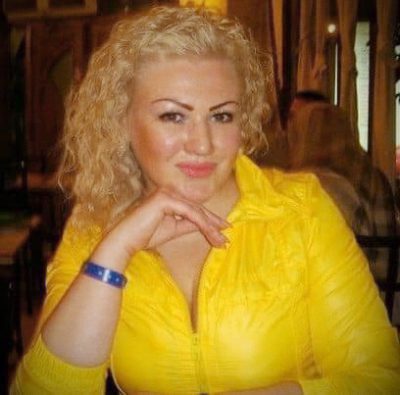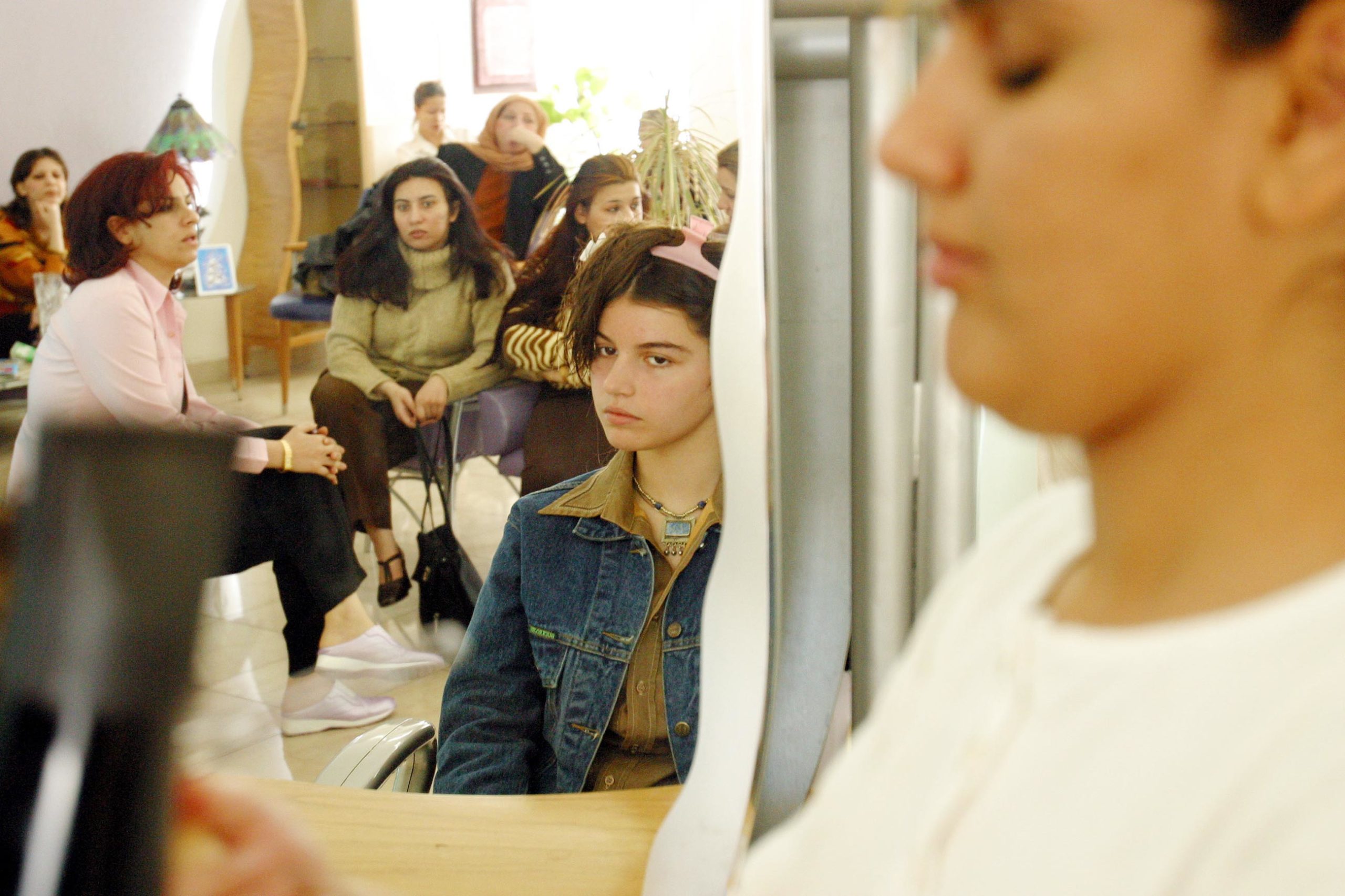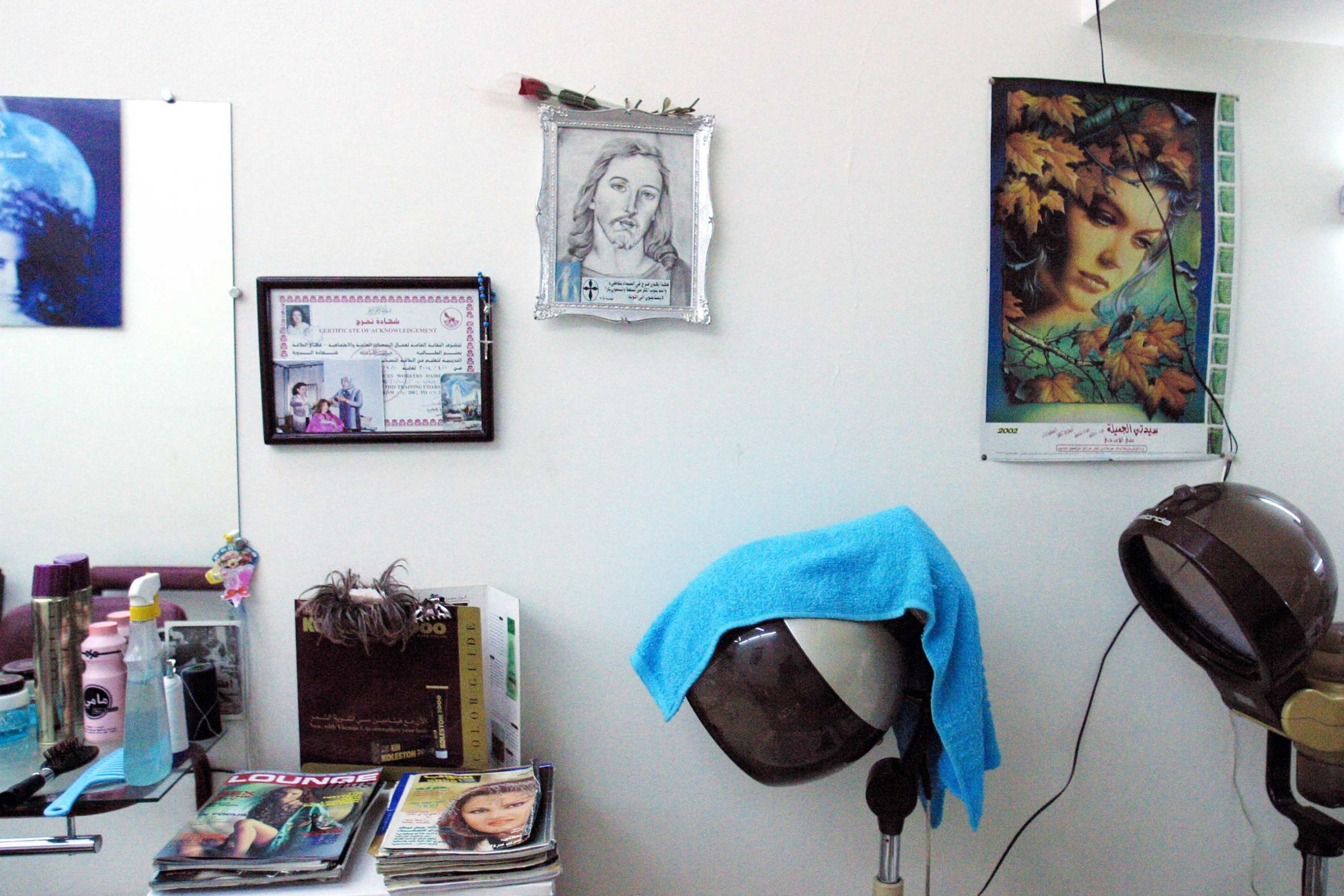A Ukrainian Women Moved to Iraq To Work as a Manicurist, Ended Up As a Wage Slave, and Died from the Coronavirus

A 41 year old Ukrainian woman named Zinaida Kovaleva died on August 7 in Erbil, the capital of Iraqi Kurdistan. She had moved from Ukraine to Erbil in October 2020, in order to work as a manicurist at a beauty salon, but ended up in a situation of labor exploitation. She had tried to leave for several months – but in the end, was infected by the coronavirus.
Zaborona’s Editor-in-Chief, Kateryna Sergatskova, spoke to women who worked with Kovaleva, and with the Ukrainian embassy in Iraq – and explains how agreed-upon work conditions can sometimes lead to death.
Zinaida Kovaleva left for Erbil in late October 2020, and began work the day after arriving in the city. This was the Shayda Beauty beauty salon in the center of the capital of Iraqi Kurdistan. Many Ukrainians and Russians worked there – it was a relatively popular method to earn money for citizens of eastern European countries.

Zinaida Kovaleva / Facebook
According to some of the women Zaborona spoke to, jobs associated with beauty in Iraq – like manicurists or colorists – are relatively high paying affairs. For example, manicurists are often offered in the region of one to two thousand USD per month. Locals prefer not to take on these sorts of jobs, though they value experienced specialists from Slavic countries. Zinaida had previously lived in a small town near Kyiv and worked as a manicurist, before an acquaintance had offered her the chance to earn more in Iraq.
“Zina had left for Erbil for three month, as she told me,” recalls Alina Ryabokin, one of Kovaleva’s close friends. “This was, as they say, only bait – they told her, it seems, you’ll earn a minimum of a thousand dollars. She was led by this money – she had plans to go to tattoo lessons in order to learn to do eyebrows, lips, things like that. She wanted to earn this money to avoid having to take out credit, to have her own material resources.”

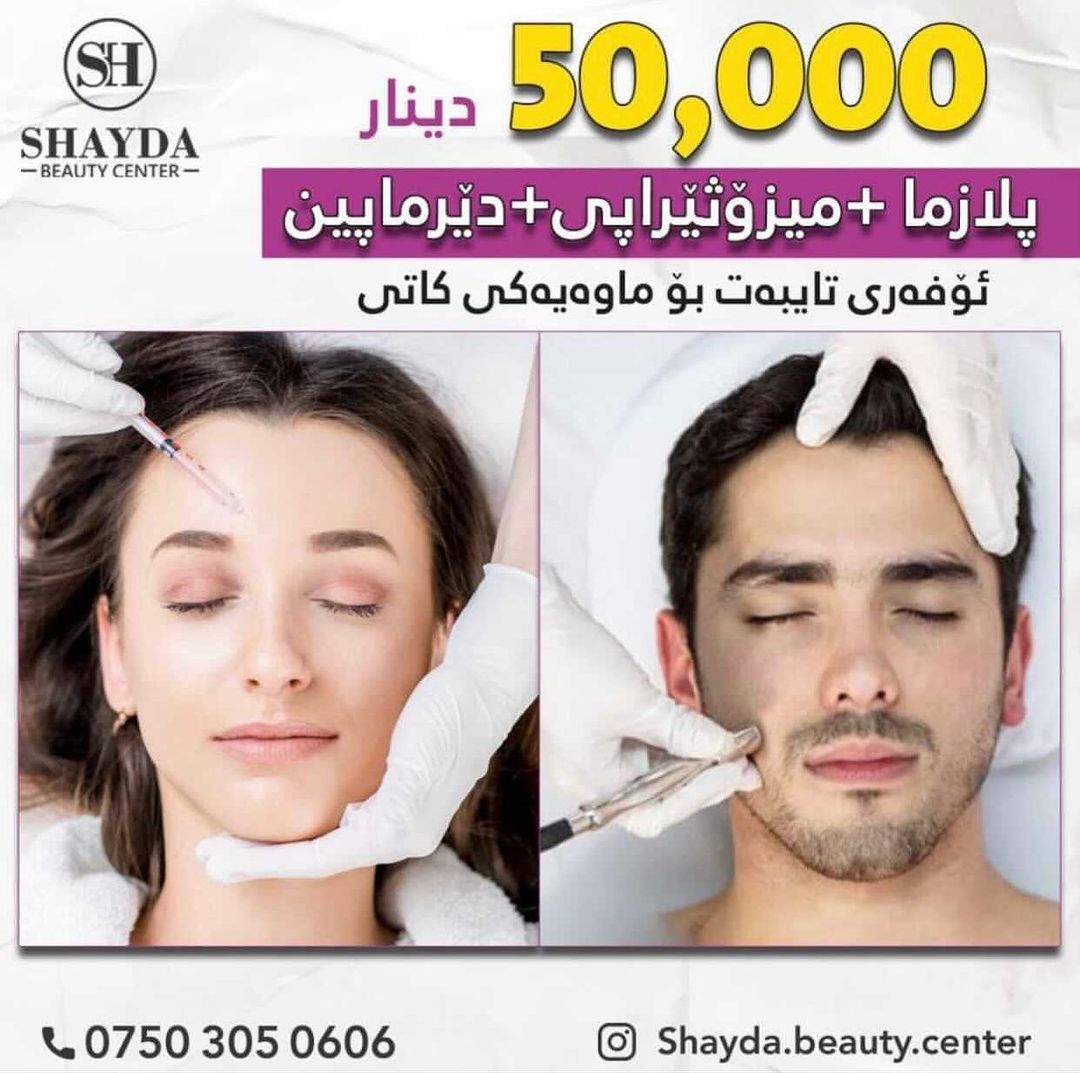
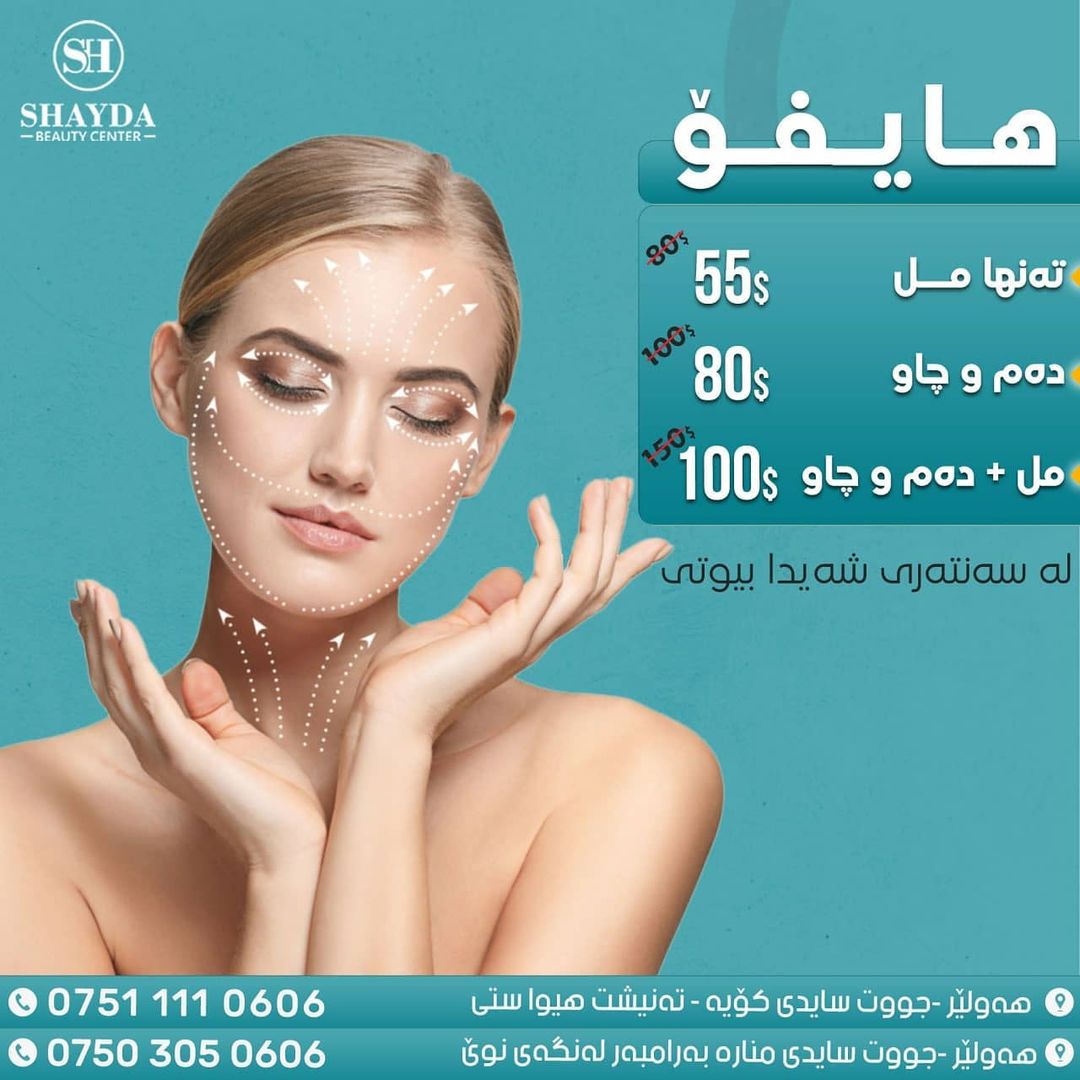
Poor working conditions
This supposedly ‘high-paying gig’ had its own conditions. People who worked at the same salon as Kovaleva explained to Zaborona that the job would purchase tickets to Iraq for the potential employees and promised them residency for their work period, though the employee would then have to ‘work off the debt’ of their placement over the first few months of work.
“Zina’s passport was immediately taken away,” said Alina Ryabokin. “Likely this was to prevent her from running off back home. After three month, she told me she’d received an ‘iqama’ (what a residency permit is called in Iraqi Kurdistan), for a year, and she had to work it off. Zina said in the spring that she believed her iqama to have been paid off, but the salon’s owner claimed that that wasn’t the case – probably in order to hold [Zina] there longer.”
Zaborona’s contacts within the salon say that this is a typical practice for these types of salons: employees have their passport seized in order to keep them from quitting and leaving the country. Salon management usually describes this as a necessity for making residency documents.
Yet several women working in salons in Baghdad and Erbil have told Zaborona that they never received their documents back. They didn’t see any work visas, or residency permits, and practically live in the territory illegally. Similar situations, as a rule, are called labor exploitation – Zaborona discusses this topic in detail in the podcast ‘This won’t happen to me’, a look into modern slavery.

A beauty salon in Baghdad. Photo: Jason Florio / Corbis via Getty Images
Some of these women have been forced to contact the Ukrainian consulate for help. Sources in the Foreign Ministry have confirmed to Zaborona that the consulate has indeed helped several Ukrainians obtain new passports and leave Iraq.
Get sick? Pay a fine
Kovaleva fell ill in mid-July. Her roommate, Rimma Adigezalova, from Russia, also came to work as a manicurist in the same salon, and had also been sick with the coronavirus. She told Zaborona that she spoke to a doctor who prescribed several medicines and house rest. On July 22, Kovaleva went to hospital and took a COVID-19 test, which came back positive. Like her roommate, she received a prescription for medicines and was sent home.
“Zina told me that she was being forced to work even while sick, and if she didn’t go, then she would be fine and not paid [for the missed days],” says Ryabokin. “I asked her how she was being treated, and she replied that she was drinking vitamins and lemon tea. When I asked her to go to the doctor, she said that she couldn’t do that – she didn’t have a passport. She also lacked insurance.”
On August 4, Ryabokin asked Kovaleva how she was feeling, to which Kovaleva responded that she was in hospital. Saturday morning Ryabokin was told that Koveleva had passed away.
Salon manager Tatyana Sidorenko (who insists that she’s no longer employed at the salon and just helps them resolve challenges) told Zaborona that Kovaleva in fact did not have any medical insurance. According to Sidorenko, insurance isn’t included in their employment contract because “…the girls lie, make up doctor’s notes in order to avoid going to work but still earn a salary, but you can always come to some sort of agreement with the salon owners.”

A beauty salon in Baghdad. Photo: Jason Florio / Corbis via Getty Images
Not long before Kovaleva’s death, claims Sidorenko, the salon’s owner brought Kovaleva her salary and asked if she’d needed anything. Kovaleva supposedly replied that she didn’t but soon fainted, and was brought to the hospital. According to roommate Adigezalova, Zina had damage covering 70% of her lungs and she was connected to an IV and breathing device.
“The doctors said that Zina would be discharged within a few days,” alleges Sidorenko. “But then she had some kind of attack – she tore off her breathing mask, [tore out her IV], and died.”
Sidorenko’s claims seem to be confirmed by Kovaleva’s death certificate, which Zaborona obtained.
What happens to the body?
People who have perished due to a coronavirus infection should be, according to World Health Organization rules, kept in a zinc coffin – or cremated, in order to avoid spreading the disease around further. When this happens to a foreigner in a different country, this situation is even more fraught with local complexities. Before transport, one of the sides can at any moment refuse to accept the body – for example, there may be difficulties in transporting the body during the connecting flight in Turkey.
It’s also not clear who’s responsible for paying for the body’s transport. Sidorenko asserts that she was quoted a price of $40,000 in order to send the body in a zinc coffin. Zaborona’s source in the Ukrainian consulate in Iraq tells us that it would be nearly impossible to repatriate the body on the state dime: that process could take up to a year. The best option would be to simply cremate the body. Yet the salon’s owner, who worked with Kovaleva, refuses to give the woman’s body up, saying that she’s “a Muslim, and [cremation] violates Islamic law.”
The Shayda Beauty Center owner offered Kovaleva’s relatives the opportunity to come to Erbil and bury her in Iraqi Kurdistan territory. Sidorenko says that the owner is ready to pay for the relative’s plane tickets and for the funeral. However, Kovaleva’s relatives want to take the body back to Ukraine and aren’t content to have her buried in a foreign country.
The Ukrainian embassy in Baghdad has so far not returned phone requests for comment, and Zaborona has submitted written questions.

Erbil city center. Photo: Dan Kitwood / Getty Images

